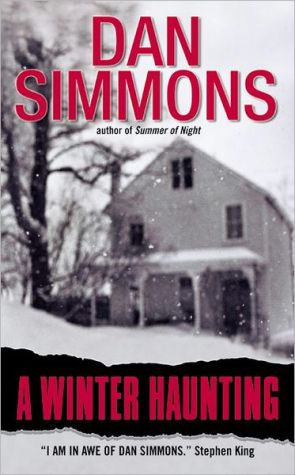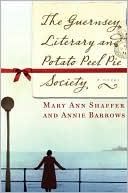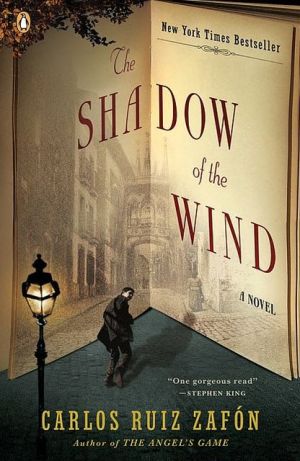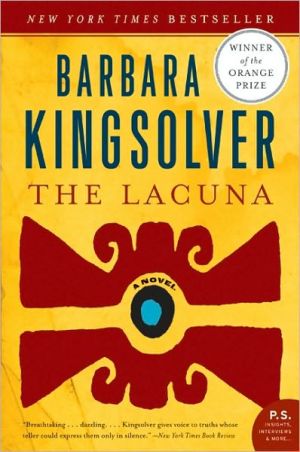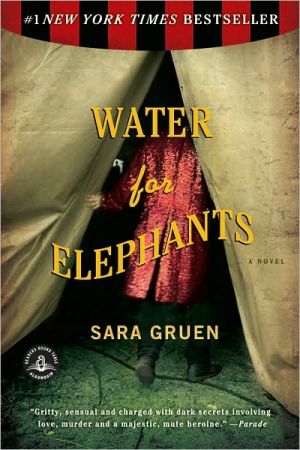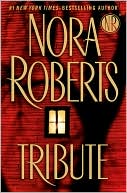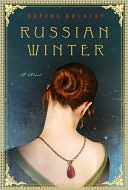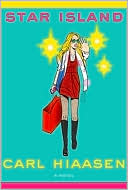A Winter Haunting
A once-respected college professor and novelist, Dale Stewart has sabotaged his career and his marriage — and now darkness is closing in on him. In the last hours of Halloween he has returned to the dying town of Elm Haven, his boyhood home, where he hopes to find peace in isolation. But moving into a long-deserted farmhouse on the far outskirts of town — the one-time residence of a strange and brilliant friend who lost his young life in a grisly "accident" back in the terrible summer of 1960...
Search in google:
A once-respected college professor and novelist, Dale Stewart has sabotaged his career and his marriage — and now darkness is closing in on him. In the last hours of Halloween he has returned to the dying town of Elm Haven, his boyhood home, where he hopes to find peace in isolation. But moving into a long-deserted farmhouse on the far outskirts of town — the one-time residence of a strange and brilliant friend who lost his young life in a grisly "accident" back in the terrible summer of 1960 — is only the latest in his long succession of recent mistakes. Because Dale is not alone here. He has been followed to this house of shadows by private demons who are now twisting his reality into horrifying new forms. And a thick, blanketing early snow is starting to fall ...Publishers WeeklyThe old saw "You can't go home again" is a chilling understatement for this highly effective supernatural shocker, Simmons's first horror novel since Fires of Eden (1994) and a sequel to Summer of Night (1991). The latter was an eerie chronicle of a summer of lost innocence for a group of preadolescent chums who confront an entity of irrepressible evil in rural Elm Haven, Ill. Four decades later Dale Stewart, a survivor of that summer, has returned to endure a winter of adult discontent: his wife has left him, his sideline career as a novelist is sputtering and a disastrous love affair has driven him to attempt suicide. Medicated to the gills for depression, Dale seeks inspiration for his next novel in a house that figured in events of the summer of 1960. But remnants of the old malign influence have survived and they manifest as vicious spectral dogs, threatening neo-Nazi punks, cryptic messages that appear magically on his computer screen and delusions that suggest he's losing his mind. Simmons orchestrates his story's weird events craftily, introducing them as unremarkable details that only gradually show their dark side. In a nod to Henry James, whose psychological ghost story "The Jolly Corner" is repeatedly invoked, he blends jaw-dropping revelations of spiritual intrusion with carefully manipulated challenges to the reader's confidence in Dale's faculties and motivations. Though it features its share of palpable things that go bump in the night, this novel is most unsettling in its portrait of personal demons of despair that imperceptibly empower them. (Feb. 1) Copyright 2001 Cahners Business Information.
Chapter One\ \ \ Forty-one years after I died, my friend Dale returned to the farm where I was murdered. It was a very bad winter.\ I know what you're thinking. There's the old journalism anecdote of William Randolph Hearst needing someone to cover the Johnstown flood and sending a young cub reporter. It was the kid's big break. The next day the novice cabled back this lead to Hearst's paper: "GOD SAT ON A LONELY HILL ABOVE JOHNSTOWN TODAY, LOOKING DOWN IN SORROW AT NATURE'S FIERCE DESTRUCTION." Old-timers swear that Hearst did not hesitate ten seconds before cabling back this response: "FORGET FLOOD STORY. INTERVIEW GOD."\ I say I died forty-one years ago and your response is, Forget the story about Dale. Who cares? Tell us what it's like to be dead -- what is the afterlife like? What is it like to be a ghost? Is there a God?\ At least, these would be my questions. Unfortunately, I am not a ghost. Nor do I know anything about any afterlife. When I was alive, I did not believe in ghosts or heaven or God or spirits surviving the body or resurrection or reincarnation, and I still do not. If I had to describe my current state of existence, I would say that I am a cyst of memory. Dale's sense of me is so strong, so cut off and cauterized from the rest of his consciousness by trauma, that I seem to exist as something more than memory, something less than life, almost literally a black hole of holistic recollection formed by the collapsing gravity of grief.\ I know this does not explain it, but then I do not really understand it myself. I know only that Iam and that there was a -- "quickening" might be the best word -- when Dale decided to return and spend the winter at the farm where I once lived and where I died.\ And, no, I have no memory of my death. I know no more of that event than does Dale. Evidently one's death, like one's birth, is so important as to be beyond recall.\ When I was alive I was only a boy, but I was fairly smart and totally dedicated to becoming a writer someday. I spent years preparing for that -- apprenticing myself to the word -- knowing that it would be many more years before I could write a real short story, much less a novel, but practicing with opening paragraphs for stories and novels nonetheless.\ If I were borrowing an opening for this tale, I would steal it from Thackeray's boring 1861 novel Lovel the Widower:\ Who shall be the hero of this tale? Not I who write it. I am but the Chorus of the Play. I make remarks on the conduct of the characters: I narrate their simple story.\ \ \ Thackeray's ominiscient "I" was lying, of course. Any Creator stating that he is a simple Chorus and impassive observer of his creatures' actions is a hypocrite and a liar. Of course, I believed that to be true of God, on the few occasions when I considered that He might exist at all. Once, when Dale and Mike and I were having a chickenhouse discussion of God, my only contribution was a paraphrased quote from Mark Twain: "When we look around at the pain and injustice of the world, we must come to the ineluctable conclusion that God is a thug." I'm not sure if I believed that then or now, but it certainly shocked Mike and Dale into silence. Especially Mike. He was an altar boy then and most devout.\ But I'm digressing even before I begin the story. I always hated writers who did that. I still have no powerful opening line. I'll just begin again.\ Forty-one years after I died, my friend Dale returned to the farm where I was murdered. It was a very bad winter.\ Dale Stewart drove from western Montana to central Illinois, more than 1,700 miles in 29 hours, the mountains dwindling and then disappearing in his rearview mirror, endless stretches of autumn prairie blending into a tan and russet blur, following I-90 east to I-29 southeast to I-80 east to I-74 south and then east again, traveling through the better part of two time zones, returning to the checkerboard geometries of the Midwest, and forcing himself down through more than forty years of memories like a diver going deep, fighting the pain and pressure that such depths bring. Dale stopped only for food, fuel, and a few catnaps at interstate rest areas. He had not slept well for months, even before his suicide attempt. Now he carried drugs for sleeping, but he did not choose to stop and use them on this trip. He wanted to get there as soon as possible. He did not really understand why he was going there.\ Dale had planned to arrive at Elm Haven in midmorning, tour his old hometown, and then drive on to Duane's farmhouse in the daylight, but it was after eleven o'clock at night when he saw the ELM HAVEN exit sign on I-74.\ He had planned to move into Duane's old house in early or mid-September, allowing plenty of time to enjoy the fall colors and the crisp, sunny autumn days. He arrived on the last day of October, at night, in the last hours of the first Halloween of the new century, hard on the cold cusp of winter.\ I screwed up, thought Dale as he took the overpass above I-74 and followed the night-empty road the two miles north toward Elm Haven. Screwed up again. Everything I haven't lost, I've screwed up. And everything I lost, I lost because I screwed it up.\ He shook his head at this, angry at the bumper-sticker-stupid self-pity of the...\ A Winter Haunting. Copyright © by Dan Simmons. Reprinted by permission of HarperCollins Publishers, Inc. All rights reserved. Available now wherever books are sold.
\ Publishers WeeklyThe old saw "You can't go home again" is a chilling understatement for this highly effective supernatural shocker, Simmons's first horror novel since Fires of Eden (1994) and a sequel to Summer of Night (1991). The latter was an eerie chronicle of a summer of lost innocence for a group of preadolescent chums who confront an entity of irrepressible evil in rural Elm Haven, Ill. Four decades later Dale Stewart, a survivor of that summer, has returned to endure a winter of adult discontent: his wife has left him, his sideline career as a novelist is sputtering and a disastrous love affair has driven him to attempt suicide. Medicated to the gills for depression, Dale seeks inspiration for his next novel in a house that figured in events of the summer of 1960. But remnants of the old malign influence have survived and they manifest as vicious spectral dogs, threatening neo-Nazi punks, cryptic messages that appear magically on his computer screen and delusions that suggest he's losing his mind. Simmons orchestrates his story's weird events craftily, introducing them as unremarkable details that only gradually show their dark side. In a nod to Henry James, whose psychological ghost story "The Jolly Corner" is repeatedly invoked, he blends jaw-dropping revelations of spiritual intrusion with carefully manipulated challenges to the reader's confidence in Dale's faculties and motivations. Though it features its share of palpable things that go bump in the night, this novel is most unsettling in its portrait of personal demons of despair that imperceptibly empower them. (Feb. 1) Copyright 2001 Cahners Business Information.\ \ \ \ \ Library JournalIt looks as if Simmons is about to become really big: Darwin's Blade made the Los Angeles Times best sellers list, and both The Crook Factory and Children of Night have been optioned for film. In this novel, which reintroduces characters we met as children in Summer of Night, Dale Stewart returns to his childhood home to recoup after a disastrous love affair but gets caught up in a long-unresolved murder. Copyright 2001 Cahners Business Information.\ \ \ School Library JournalAdult/High School-"Forty-one years after I died, my friend Dale returned to the farm where I was murdered. It was a very bad winter." What follows proves to be just as spooky as this opening suggests. Dale Stewart suffered a traumatic summer in 1960 when he was 11. His friend Duane McBride was mysteriously killed by a runaway piece of farm equipment. That story is told in Simmons's Summer of Night (Warner, 1992). Now, Dale, who is a professor and author of mountain-man adventure stories, is not doing well. He left his wife and family during a love affair with a graduate student who has since left him. He survived a suicide attempt and is being counseled for severe depression. Against his doctor's advice, he travels to his boyhood hometown in Illinois to spend his winter sabbatical in the now-empty home of his deceased friend. Even inattentive readers will spot the signs that Dale is in the midst of a horror story: the second floor of the farmhouse is sealed off with layers of plastic, yet a light glows at night as if someone were in there; he is repeatedly threatened by a group of dangerous skinheads; and a dog that appears to increase in size stalks him. And plenty of other spine-tingling events occur. Whether it's just horror fiction or Dale is actually insane hardly matters. It's good spooky fun that teens will love-but may not want to read when alone, at night, during a storm etc.-Carol DeAngelo, Kings Park Library, Burke, VA Copyright 2002 Cahners Business Information.\ \ \ \ \ Kirkus ReviewsSequel at half the length to Simmons's 1990 baggy-pants small-town Illinois childhood nostalgia fest, Summer of Night, told partly through the hovering spirit of Duane, an 11-year-old genius chewed to pieces by a corn combine 40 years ago. Now disembodied, Duane sees the world through the eyes of childhood buddy Dale Stewart, who survived their elementary school's haunted big Borgia Bell and some nasty, wildly betoothed, burrowing, nine-foot black eels. Lit professor Dale, who writes formulaic Jim Bridge: Mountain Man novels, leaves his Montana ranch-and a failed love affair with a grad student-on sabbatical and returns to the deserted McBride farm to write his first "serious" novel, which sounds much like Summer of Night without the horror. During a year of clinical depression, he'd written Internet editorials about Montana neo-Nazi skinheads, and now the Illinois skinheads are onto him. The McBride farm has disturbing qualities: the odor of some large dead thing, a sealed-off upstairs, a living room full of strange metal "learning boxes." Simmons has an enjoyable time ringing in strong echoes of the earlier book, but mostly Simmons (like Dale Stewart) works toward a seriously well-written nonhorror novel, until we grow suspicious that we are into a deceptive tale much like the flicks The Sixth Sense and The Others, with a Jamesian ghost story overlay, wherein the everyday has an otherworldly reverse side. This makes A Winter Haunting hard to review without giving away its more subtle suspense elements. What's more, Professor Stewart, now reading Swann's Way and Seamus Heaney's recent translation of Beowulf, finds his ThinkPad sending him warnings from Duane in Anglo-Saxon. Dale (not DanSimmons, of course) complains about the "jackal piss" his reviewers squirt on him. Then big black dogs (his depression?) hound the farm and reality wavers-then really wavers. A rich read most jackals will take kindly to. Author tour\ \
